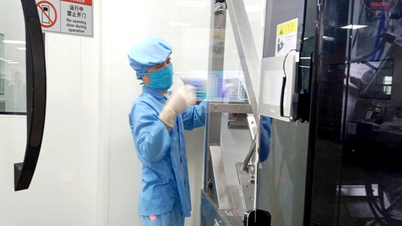The discussion took place in a particularly important context when the 7th Session of the 15th National Assembly was discussing amendments to the Law on Special Consumption Tax, including adjustments to tobacco tax.
At the plenary session on the morning of May 9, many National Assembly deputies expressed strong concern not only about the effectiveness of budget collection, but also about the role of tax policy in protecting public health and promoting social equity.
At the seminar, expert Nguyen Thi Thu Huong (in charge of the Professional Department, Tobacco Harm Prevention Fund, Ministry of Health ) said: Tobacco use is one of the leading causes of illness and premature death.
Cigarettes contain 7,000 chemicals, 69 of which are carcinogenic, and are the cause of 25 diseases such as cancer, cardiovascular disease, respiratory disease, and reproductive disease.
Currently, there are up to 40 cigarette brands on the market priced from 7,000 to 10,000 VND/pack. This makes it easy to access cigarettes, especially for children, adolescents, and low-income people. This greatly affects the achievement of the goals set out in the national strategy to 2030 (in Decision No. 568/QD-TTg dated May 24, 2023 of the Prime Minister ).
According to statistics updated to 2021 by the World Health Organization (WHO), in Vietnam, tobacco use causes 85,500 deaths each year. Passive smoking causes 18,800 deaths. A total of 104,300 deaths/year due to tobacco-related diseases...
When a person smokes in the home, in the car or in public, the smoke spreads and seriously affects all those around them, even if they do not smoke at all.
According to the World Health Organization, about 1.2 million people die each year from passive smoking, many of whom are women and children – people who are not voluntarily exposed to cigarette smoke.
At the seminar, experts said that because of such serious and widespread harms, the work of preventing and combating the harmful effects of tobacco needs a comprehensive and sustainable approach, not only relying on propaganda and recommendations to change individual behavior, but also requiring strong public policies with far-reaching impacts, in which increasing tobacco taxes is a particularly effective tool that has been proven.
Adopting higher tax rates, approaching WHO recommendations, would not only help reduce the burden of illness and death from non-communicable diseases, but also create sustainable resources for public health programmes.
At the seminar, Master Dao The Son (Vital Strategies) also analyzed in depth the scenarios of tax increases and their impacts on employment and smuggling, while rejecting unfounded concerns about the "side effects" of this policy.
Meanwhile, Ms. Nguyen Thi Thu Huong (Tobacco Harm Prevention Fund) emphasized: "Tax is a powerful behavioral control tool, based on solid evidence from international and domestic practices."
According to Decision 568/QD-TTg dated May 24, 2023 of the Prime Minister approving the National Strategy on Tobacco Harm Prevention and Control to 2030:
Develop a roadmap for increasing taxes on tobacco products to ensure that by 2030 the tax rate reaches the ratio of retail price recommended by the World Health Organization (70-75% of retail price). Research and evaluate the effectiveness of the option of calculating taxes on tobacco products based on retail price or the option of using a mixed tax structure.
From 2019 to present (According to the Law on Special Consumption Tax), Vietnam is currently applying the special consumption tax rate of 75% and the taxable price is the factory price.
The rate of tobacco tax calculated on retail price (including excise and value added) is only 36%, much lower than the average of middle-income countries at 59%, only half of most ASEAN countries (Thailand 78.6%, Singapore 67.1%, Indonesia 62.3%).
The tax rate on retail price as recommended by the World Health Organization is 75% of the retail price...
Source: https://nhandan.vn/huong-toi-mot-tuong-lai-khong-khoi-thuoc-post883105.html


![[Photo] General Secretary To Lam receives Chief of the Central Office of the Lao People's Revolutionary Party](https://vphoto.vietnam.vn/thumb/1200x675/vietnam/resource/IMAGE/2025/5/30/140435f4b39d4599a3d17975dfb444c5)

![[Photo] National Conference "100 years of Vietnamese Revolutionary Press accompanying the glorious cause of the Party and the nation"](https://vphoto.vietnam.vn/thumb/1200x675/vietnam/resource/IMAGE/2025/5/30/1cf6cd5c8a934ebfa347028dcb08358c)

![[Photo] A delegation of 100 journalists from the Vietnam Journalists Association visits the soldiers and people of Truong Sa island district.](https://vphoto.vietnam.vn/thumb/1200x675/vietnam/resource/IMAGE/2025/5/30/0984a986227d4e988177f560d2e1563e)
![[Photo] Journalists moved to tears at the Memorial Service for the soldiers who died in Gac Ma](https://vphoto.vietnam.vn/thumb/1200x675/vietnam/resource/IMAGE/2025/5/30/9454613a55c54c16bf8c0efa51883456)



















































































Comment (0)